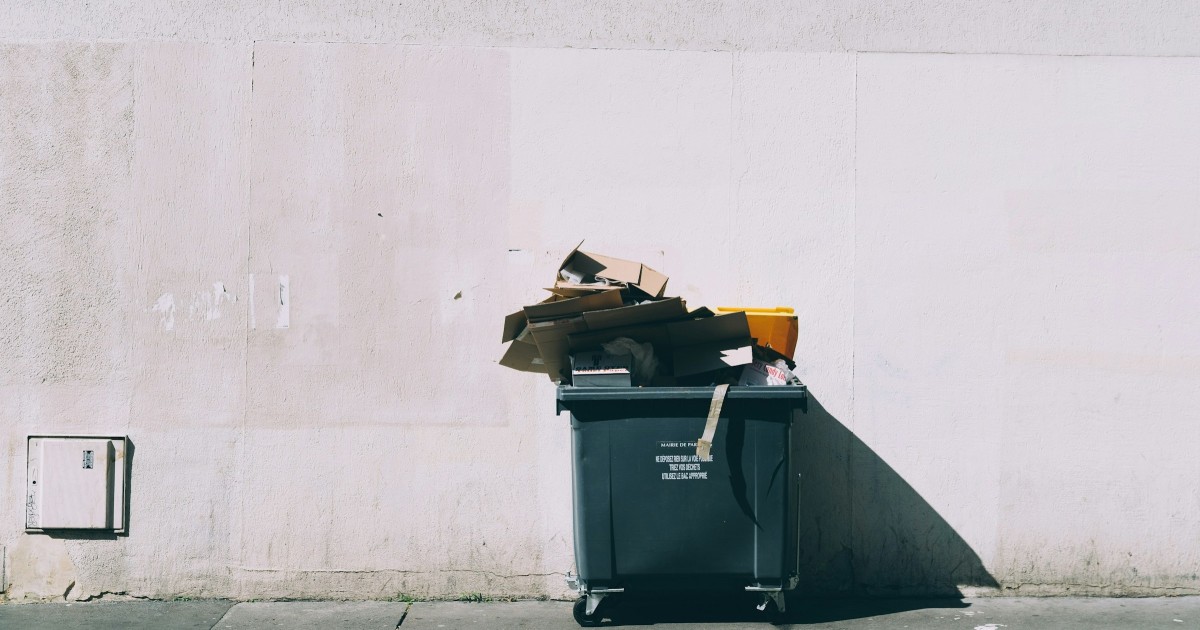
In 2025, Spain has implemented a nationwide waste management tax, officially known as the Tasa de Basuras. This new tax marks a major shift in how urban waste is financed, emphasising the “polluter pays” principle and aligning with European Union directives on recycling and sustainability.
The law affects all municipalities with more than 5,000 inhabitants and aims to make waste collection and treatment fairer, more efficient, and environmentally responsible.
What is the Tasa de Basuras?
The Tasa de Basuras is a municipal tax charged for the collection, transport, treatment, and disposal of urban waste. It also funds landfill maintenance and post-closure supervision. The tax ensures that households and businesses contribute to the costs of managing the waste they produce.
This measure stems from Law 7/2022 on Waste and Contaminated Soils, designed to implement the EU’s circular economy directives. The goal is ambitious: by 2025, at least 55% of urban waste should be reused or recycled, with the target rising to 65% by 2035.
Who has to pay the Tasa de Basuras?
- Residences and businesses in municipalities with more than 5,000 inhabitants are required to pay.
- The occupant of the property, whether tenant or owner, is responsible for payment.
- Some municipalities offer discounts or exemptions for low-income households, large families, or individuals who practice excellent recycling habits.
How the tax is calculated
Municipalities have the flexibility to determine the calculation method. Common approaches include:
- Property value-based calculation: Some cities calculate the tax using the cadastral value of the property.
- Water consumption-based calculation: Other municipalities use water usage as a proxy for waste generation.
- Per resident or household: In smaller towns, a flat fee per person or household is sometimes used.
- Recycling incentives: Residents who recycle efficiently may see lower variable rates.
For example, in Madrid, the calculation considers property value, waste generation patterns by neighbourhood, and recycling behaviour. As an example, according to Cadena Ser, in Humanes de Madrid, the 2026 Tasa de Basuras is set to range from €85 to €140 per household, depending on property size and type.
Estimated costs for households
The average annual cost per household is expected to be between €165 and €200, though actual rates vary by municipality. Larger households or properties producing more waste may pay more, while those practising rigorous recycling may benefit from discounts.
Tips for minimising costs:
- Understand your local ordinance: Each municipality sets its own formula.
- Check eligibility for exemptions or discounts: Low-income families, the elderly, and environmentally responsible households may qualify.
- Negotiate rental agreements: Tenants should clarify whether the tax is included in rent.
- Recycle diligently: Good recycling can reduce the variable portion of your tax.
Reactions and controversies
The Tasa de Basuras has stirred debate:
- Federation of Spanish Municipalities and Provinces (FEMP): Warned that inconsistent calculation methods could create inequality between cities.
- Local tax inspectors: Highlight a potential shortfall of €2,000 million, suggesting that current tax rates may not cover total waste management costs.
- Consumer groups (OCU): Advocate for transparency and equitable rates, ensuring that responsible recyclers are not penalised.
The introduction of this tax has also impacted inflation: the cost of waste collection rose 30.3% year-on-year in October 2025, according to Spain’s National Statistics Institute (INE), making it one of the fastest-growing components in consumer prices.
Environmental benefits
While primarily a fiscal measure, the Tasa de Basuras also aims to encourage sustainable waste practices:
- Promotes recycling and waste separation.
- Discourages excessive waste generation.
- Provides funding for cleaner, more efficient waste management systems.
- Helps municipalities meet EU recycling targets.
How businesses in Spain are affected
Businesses, particularly those producing significant amounts of waste, will see a noticeable impact:
- Restaurants, hotels, and retail outlets may pay higher rates depending on waste volume.
- Some municipalities encourage segregation of commercial and organic waste, offering reduced fees for compliance.
- Businesses must account for the Tasa de Basuras in their operational costs, potentially affecting pricing and budgets.
Tips for citizens and businesses
- Stay informed: Check your city council’s website for specific calculation methods.
- Keep recycling records: Some municipalities may offer discounts based on verified recycling efforts.
- Plan finances: Factor in this new tax when budgeting for household or business expenses.
- Engage with local authorities: Provide feedback if rates seem unfair or inconsistent with service levels.
Key takeaways
- Spain’s Tasa de Basuras 2025 is a mandatory municipal tax on urban waste.
- Rates vary by municipality, calculated based on property value, water consumption, number of residents, or recycling behaviour.
- Average households can expect to pay €165–€200 per year, though rates differ widely.
- The tax is part of a broader strategy to meet EU recycling targets and encourage responsible waste management.
- Both residents and businesses need to adapt to new rules, while policymakers balance revenue with fairness and environmental goals.





